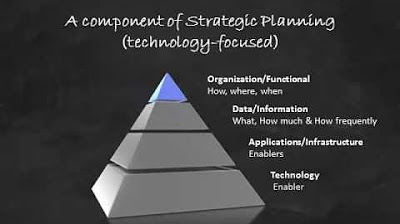AECA Session 1 Intro
Summary
TLDRThe online course on 'Fundamentals of Agro Enterprise Clustering Approach' is a collaboration between Jolly Be foundation and Savior University ATO de Cagayan. It aims to empower Filipino smallholder farmers to become agro-entrepreneurs by expanding their participation in the agricultural value chain. The course, based on over 15 years of experience, is structured into seven modules, covering topics like value chain status, market engagement, and the Agro Enterprise approach. With no assignments, learners can complete the course at their own pace, with a certificate upon completion.
Takeaways
- 🌾 **Introduction to Agro Enterprise Clustering Approach**: The course introduces the Agro Enterprise Clustering Approach (AA) aimed at helping Filipino smallholder farmers become agro-entrepreneurs.
- 📚 **Collaboration**: The course is a collaboration between Jolly Be foundation and Savior University ATO de Cagayan, combining practical experience with academic insights.
- 👨🌾 **Target Audience**: The course is designed for smallholder farmers, aiming to expand their participation in the agricultural value chain.
- 🌟 **Course Objectives**: The course aims to teach the importance of expanding farmers' participation in agriculture, engage with formal markets, describe AA, and assess organizational readiness to support farmers.
- 📈 **Performance Challenges**: The Philippine agriculture sector faces challenges such as land management, human development, technology, financing, and market access.
- 🔄 **Existing Initiatives**: There are various public and private initiatives to address these challenges, including the promotion of modern technologies and financing programs.
- 📚 **Course Structure**: The course consists of seven modules with a total learning time of around 3 hours, covering the status of agriculture, value chains, and the three phases of AA.
- 📅 **Self-Paced Learning**: The course is self-paced, allowing learners to choose their own pace but must be completed before the end of the month.
- 📝 **Assessments**: Each module ends with a short assessment to check learning, which must be passed before moving to the next module.
- 🎓 **Completion Certificate**: Upon completing all seven modules, learners will receive a certificate of completion.
- 🤝 **Community Engagement**: Learners can participate in forums to share thoughts and ideas with fellow learners.
Q & A
Who are the hosts of the online course on the fundamentals of Agro Enterprise clustering approach?
-The hosts are La Crat, Director for Partnerships and Operations of the Jolly Be foundation, and Har Musa, Dean of the College of Agriculture of Saviour University ATO de Cagayan.
What is the main goal of the Agro Enterprise clustering approach course?
-The main goal is to help Filipino small holder farmers become Agro entrepreneurs by expanding their participation in the value chain and improving their income.
What is the basis of the course content?
-The course content is based on more than 15 years of experience from the Farmer Entrepreneurship program of Jolly Be foundation, enriched with academic and extension insights by the Faculty of Saviour University.
What are the key challenges faced by Filipino farmers as mentioned in the script?
-The key challenges include Land Management, human development, technology, financing, and access to markets.
What does the acronym 'AA' stand for in the context of the course?
-AA stands for 'Agro Enterprise clustering approach'.
What are the learning outcomes expected from the course?
-Learners will be able to discuss the importance of expanding small holder farmers' participation in the agricultural value chain, understand elements necessary for engaging formal markets, describe AA and its relevance, and assess their organization's readiness to help small holder farmers integrate AA.
How many modules does the course have and what is the total learning time?
-The course has seven modules with a total learning time of around 3 hours.
What types of learning materials can be found in each module?
-Each module will have various learning materials such as videos and short readings.
Are there any assignments to submit in the course?
-There are no assignments to submit, but each module ends with a short assessment to check learning.
What is the duration to complete the course?
-The course is self-paced, but it must be completed before the end of the month as the course will automatically close after that.
What will learners receive after completing all seven modules?
-After completing the seven modules, learners will receive a certificate of completion.
What is the purpose of the orientation session mentioned at the end of the script?
-The purpose of the orientation session is to give an overview of the approach so learners can have a better understanding of what it is and how it is done to help support small holder farmers.
Outlines

This section is available to paid users only. Please upgrade to access this part.
Upgrade NowMindmap

This section is available to paid users only. Please upgrade to access this part.
Upgrade NowKeywords

This section is available to paid users only. Please upgrade to access this part.
Upgrade NowHighlights

This section is available to paid users only. Please upgrade to access this part.
Upgrade NowTranscripts

This section is available to paid users only. Please upgrade to access this part.
Upgrade Now5.0 / 5 (0 votes)





